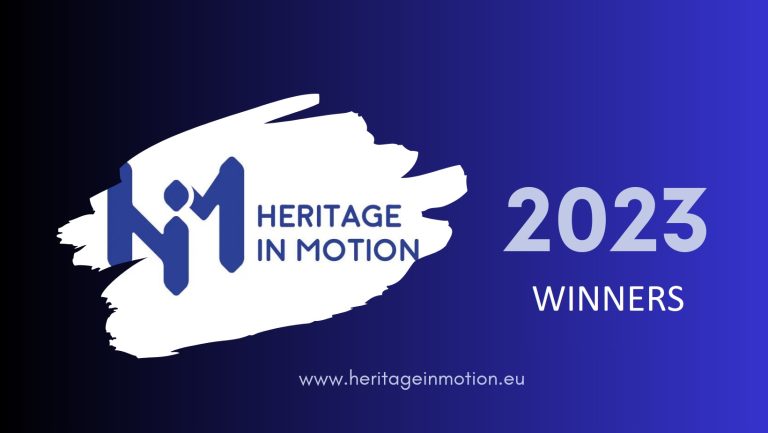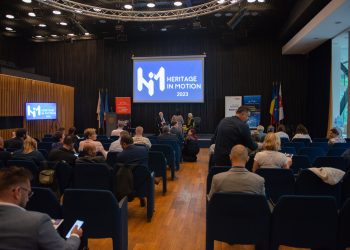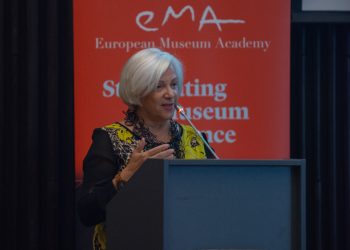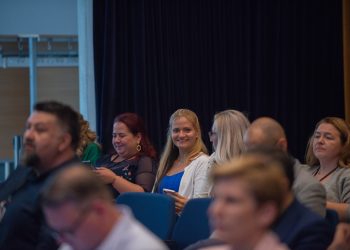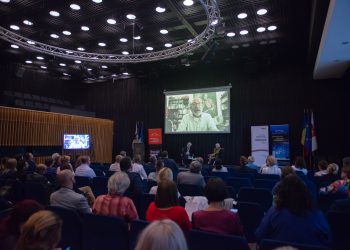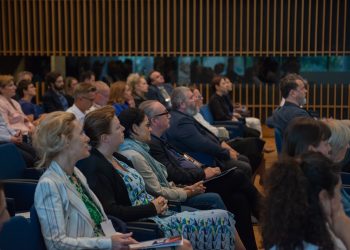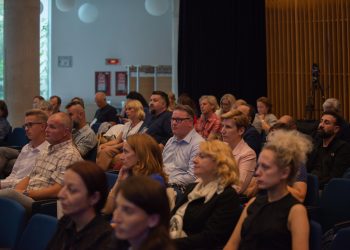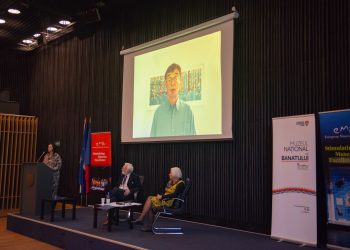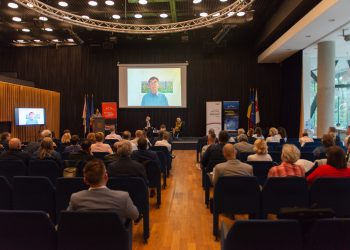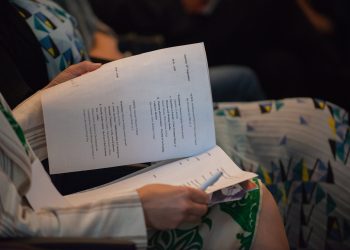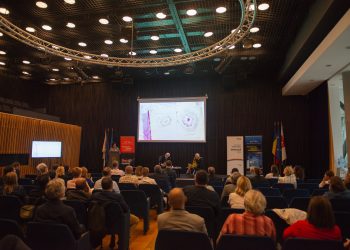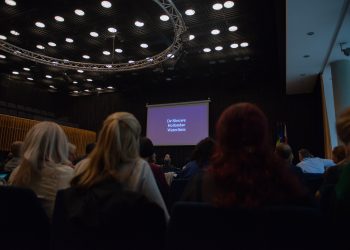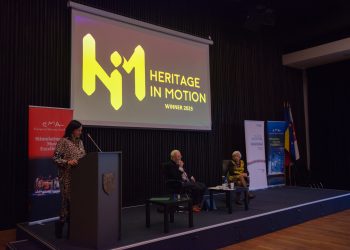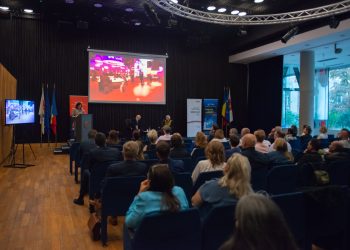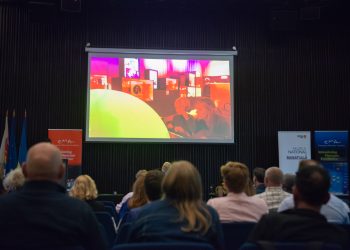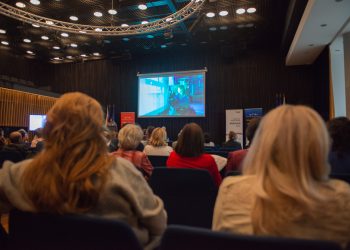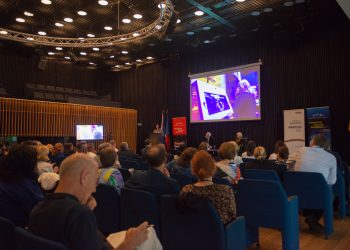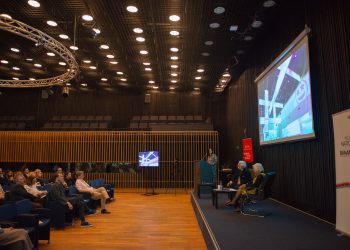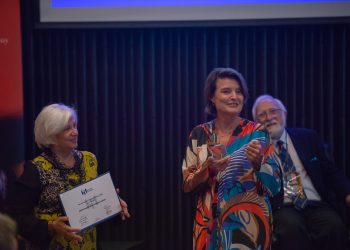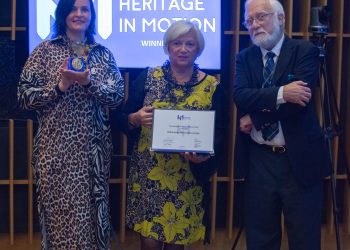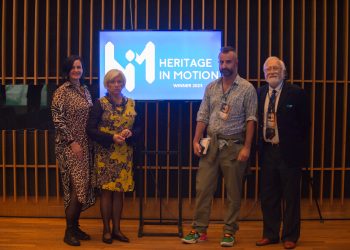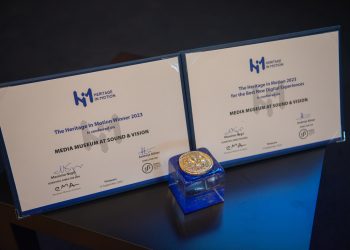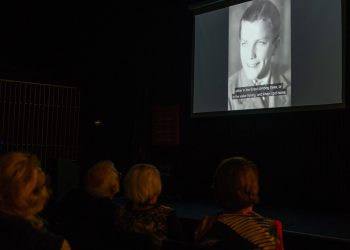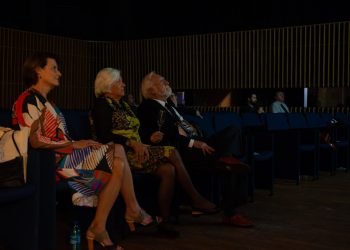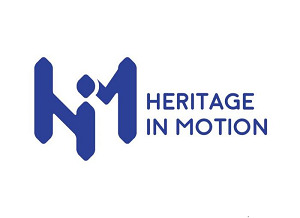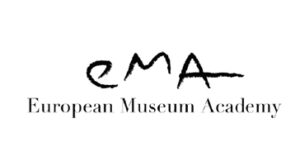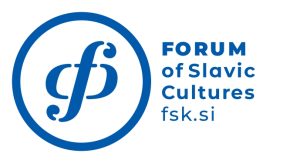HERITAGE IN MOTION
The Heritage in Motion Award recognises innovative multimedia and audiovisual projects which promote, explore or safeguard Europe’s cultural heritage, and open up exciting new routes for audiences into heritage collections.
Heritage in Motion 2024
New developments in multimedia technology and the importance of audiovisual expressions capture a vital role in making cultural heritage accessible to European citizens. The Heritage in Motion Award celebrates unique audiovisual projects and the most innovative European projects in this field.
The Heritage in Motion Award was founded in 2012 by the joint initiative of the European Museum Academy and Europa Nostra. The Award has a lasting tradition of celebrating the best examples of innovative multimedia and digital projects on cultural heritage in Europe. The first edition was held in 2014, and since the beginning of 2023, the project is managed jointly by EMA and the International foundation Forum of Slavic Cultures.
This year’s judges: Robin Lutz (coordinator), Tijana Palkovljević Bugarski, Amilcar Vargas
Robin Lutz is one the founder of the HIM award. In 2008 Robin Lutz received in Hollywood a golden film award and in that period, he noticed that there were actually no award festivals in which cultural heritage was discussed. He researched that matter and it turned out that there were hundreds of film festivals all over the world, but none about specific “cultural heritage”.He thought it would be a good idea to set up such an award ceremony especially for cultural heritage. He found Wim van der Weiden right away willing to shape this plan together. Wim van der Weiden is a big shot in the European museum scene. Wim and Robin decided to make Heritage in Motion part of the EMA; the European Museum Acadamy. That was already an existing festival in which HiM fitted just right.
Tijana Palkovljević Bugarski holds a PhD form the University in Belgrade and she is Director of the Gallery of Matica Srpska (Serbia). In 2017, she was elected for the Chairman of the Board of Directors of Novi Sad European Capital of Culture 2022 Foundation. Since 2022, she is the president of the Committee of the National (Serbian) Capital of Culture. She is also the member of the Department of Fine Arts of Matica Srpska and the ICOM.
Amilcar Vargas holds a PhD from the University of Barcelona and is responsible for World Heritage at Casa Batlló. His main task at Casa Batlló is the implementation of the World Heritage Convention, raising awareness of the Outstanding Universal Value and pursuing the potential opportunities of Casa Batlló’s inscription on the UNESCO List. An expert in World Heritage Management, he’s worked at UNESCO (Paris) and presented worldwide, publishing across 15 countries.
Participants compete for prizes in the following four categories:
New Digital Experiences
With a focus on 1. the opportunities given by the new technologies to promote the cultural heritage; 2. the experiential dimension as the distinctive feature of museums, historical places, and cultural heritage sites (for example immersive environments, multimedia installations, interactive spaces)
Virtual and Augmented Reality
A new tool for the interpretation, study, promotion, and audience development of heritage sites and cultural institutions (for instance: VR/AR as a tool to explore the museums’ repositories).
Heritage Audiovisuals
Film, Video, Documentary, Fiction, Animation with a focus on audiovisual production on the topics of world/museum cultural heritage
Heritage Schools
Youth, Schools, Students, Academy with a focus on movies made by youth on the topic of world/museum cultural heritage
High school (15 to 18)
Student (19 to 25)
THE WINNERS OF HIM 2023 COMPETITION ARE:
Heritage in Motion Award 2023 – Main Award and New Digital Experiences Award 2023
Winner: Media Museum at Sound & Vision
Project website: https://beeldengeluid.nl/en/visit/new-media-museum
Applicant: Stefanie van Kester (the Netherlands)
Justification of the judges:
“Previously focusing on traditional media, radio and television, in February 2023 the institute of Sound and Vision in the Netherlands, unveiled a cutting-edge Media Museum, that has been fully adapted to the whirlwind changes in the media landscape in the past decades.
The result of the renewal is a highly interactive exhibition, a digital playground for young users of social media in particular but captivating audiences of all ages as well as creatively engaging them with the evolution of communication and media.
Inside a futuristic lab reminiscent of a science fiction film, attendees explore the realm of media’s capabilities and, crucially, its positive or negative impact on personal lives, for example: the secrets of good storytelling and editing; the hidden seduction techniques of advertisers; the role of influencers; the dangers of deepfake and fake news; the effects of cyberbullying, online threatening and hate speech; future developments like the ‘metaverse’ or holography.
Loads of serious information is wrapped in smart, educative but often also funny exhibits, powered by state-of-the-art interactive technology. As such the Media Museum is one of a kind, rightly praised by some as “coolest media museum of the world” and deserving to receive the Heritage in Motion Award 2023 as well as New Digital Experiences Award 2023.”
Virtual and Augmented Reality Award 2023
No awards or special commendations were given in the category of Virtual and Augmented Reality Award 2023.
Heritage Audiovisuals Award 2023
Winner: The New Dutch Waterline
Project website: https://synergique.nl/portfolio/gele-loods-naarden/?lang=en
Applicant: Pepijn Borgwat (the Netherlands)
Justification of the judges:
“The audiovisual »The New Dutch Waterline« helps understanding the history, challenges, as well as the human and technical effort of a nation that transformed the landscape to create a work of engineering of an outstanding and universal value. The animation of archive pictures, graphics and maps enhances the understanding of the whole process in a clear, clever, sharp, and inspiring way. Numbers, figures, dates and maps are balanced with a humanistic narrative. Last, but not least, the extension of the storytelling until the present day is very relevant for the contemporary appreciation of this recently inscribed UNESCO World Heritage site.”
Heritage Schools Award 2023
No awards or special commendations were given in the categoriy of Heritage Schools Award 2023.
THE SPECIAL COMMEMODATIONS OF HIM 2023 COMPETITION ARE:
New Digital Experiences Special Commendation 2023
Project: Notre-Dame de Paris, the Augmented Exhibition
Project website: http://www.notredameexpo.com
Applicant: Quentin Defaut (France)
Justification of the judges:
“On April 15, 2019, France was rocked by a major fire in one of its most famous historical heritage sites: the Notre-Dame Cathedral in Paris, one of the most visited cathedrals of the world. Three years later, while the cathedral is still closed for reconstruction, a new travelling exhibition brings the cathedral to its visitors from all over the world and gives them the chance to explore the 850-years history of the famous building.
The exhibition uses augmented reality in a highly innovative way. Visitors receive a ‘Histopad’ (developed by the startup Histovery) that enables them to dig as deep as they like in the history of the Notre-Dame, from the 12th century up to the 21st century and the ongoing reconstruction works.
Through a smart fusion of history and innovation visitors embark on a journey where centuries-old magnificence meets cutting-edge technology.
The exhibition brings history to live and makes art, history and innovation converge. With this next-level storytelling it succeeds to attract a broad audience of all ages to an educative and immersive journey through space and time.”
Heritage Audiovisuals Special Commendation 2023
Project: Identity on the Line
Project website: https://i-on.museum/
Applicant: Identity of the Line (Norway, Denmark, Sweden, Poland, Lithuania, Slovenia, Croatia)
Justification of the judges:
“The documentary »Identity on the Line« is an outstanding study of the effects of a relevant historical process that is nowadays stills on a political and social agenda: human migration. The topic is relevant for the European identities and sense of belonging that the documentary deeply explains. This special mention is a recognition for its humanistic approach to migrations that helps contemporary citizens to reflect about the issue. “
Heritage in Motion 2023 Award Ceremony, 15 September 2023
Photo by: Darius Sala

